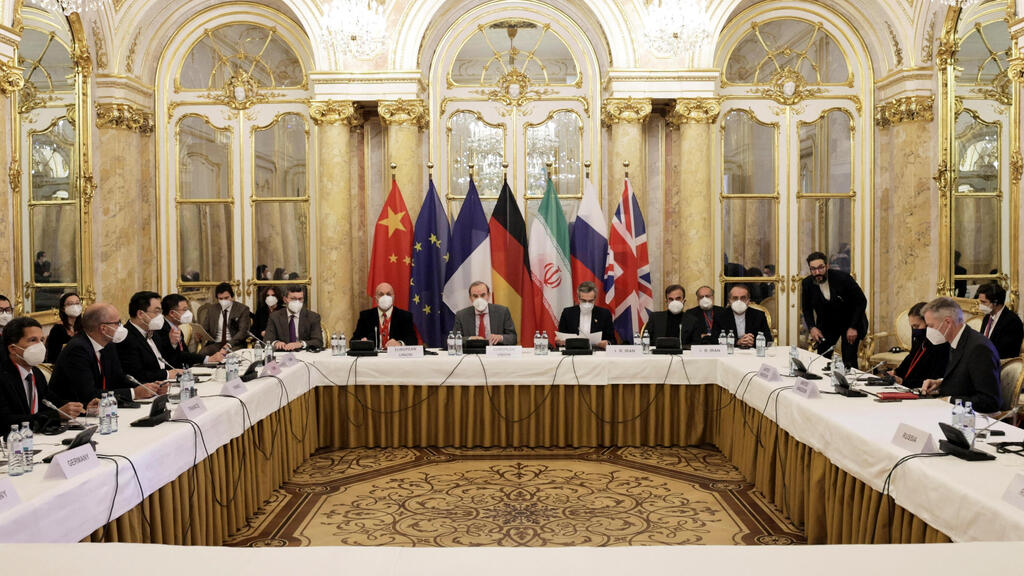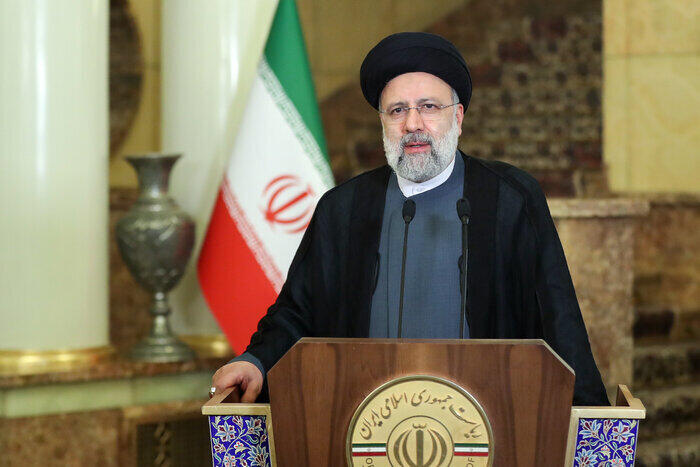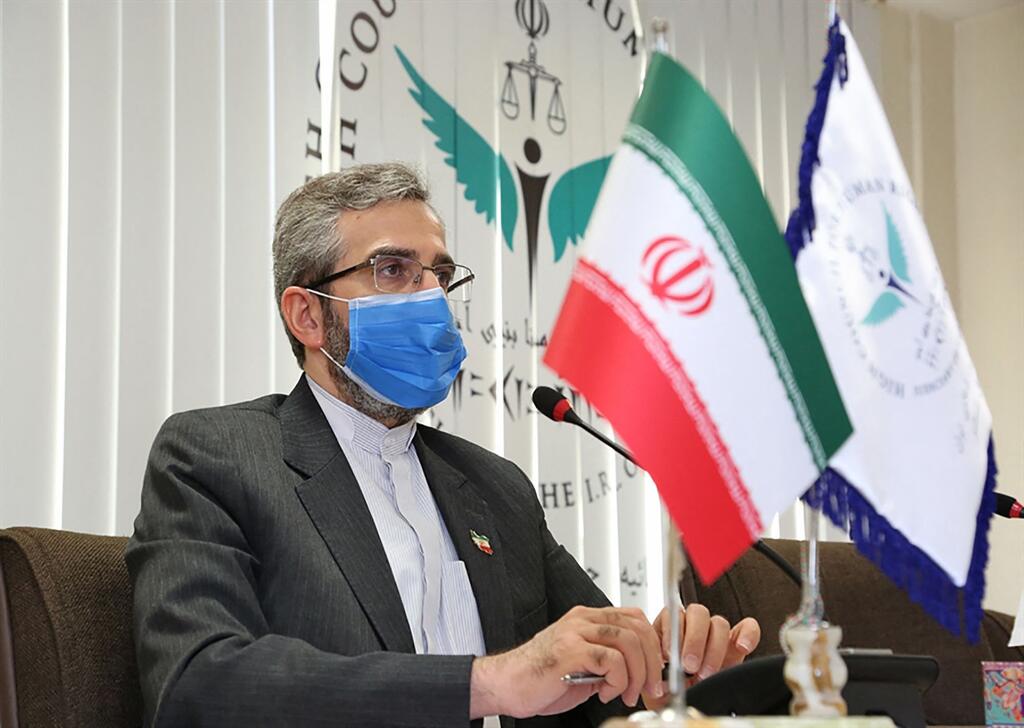Getting your Trinity Audio player ready...
Chances of world powers and Iran rejoining a 2015 agreement to curb Tehran's nuclear program are very slim, Israeli officials told Ynet on Tuesday.
The European Union on Monday tabled what it called its "final" text to restore the tattered 2015 nuclear pact after four days of rigorous indirect negotiations between U.S. and Iranian officials wrapped up in Vienna.
3 View gallery


World powers meet with Iranian delegation in Vienna to discuss U.S. return to the 2015 nuclear deal
(Photo: Reuters)
The sources said they were unfazed by the Europeans' optimism.
"There was momentary air of optimism, but it became clear very quickly this was artificial optimism whose aim was to pressure the Iranians into making a decision in hopes that they'll accept the text as it as-is," they said.
"There's essentially no change, this is a platform whose goal is to facilitate a return to a deal, but there is no change of strategy on the Iranians' part. They are not interested in accepting this deal and will struggle to return to an agreement that doesn't improve the original conditions."
While some high-ranking officials in Iran, including its foreign minister and the head of its National Security Council, support a return to the deal, others are reluctant to accept a deal that could be considered a failure or a concession in the eyes of the public. The latter group includes President Ebrahim Raisi, Iran's Atomic Energy Organization, the Islamic Revolutionary Guards Corps (IRGC), and the parliament (Majles).
As far as Raisi is concerned, the current deal does not grant him enough freedom of action and he constantly expresses little interest in the West's offers. Meanwhile, his subordinates are still trying to convince him to change his mind.
3 View gallery


Iranian President Ebrahim Raisi addressing the UN General Assembly
(Photo: Screenshot)
Raisi's mind could still be swayed if the proponents of the deal manage to convince Iran's Supreme Leader Ayatollah Ali Khamenei to embrace the proposal.
Be that as it may, the Europeans and the Americans believe that turning the screws on Tehran might yield the desired outcome.
"Israel is hoping that the superpowers will not allow the Iranians to continue dragging their feet and realize they are not moving toward an agreement," the sources said while pointing to a change in attitude in the West with the dawning realization that Tehran is not interested in going back to an agreed framework.
"The pressures exerted on Iran lately are the outgrowth of cooperation between Israel and superpowers, and you can see the results of these actions are felt in Iran."
Meanwhile, Jerusalem is preparing for three possible scenarios — a new deal, protracted talks, or a crisis.
It is still unclear what would happen once the European ultimatum expires as the Iranians are believed to be feigning interest in the negotiations to more buy time.
If talks end up falling through, Israel believes the U.S. would impose further sanctions on the Iranians and enforce existing ones in order to increase pressure on Tehran.
One of the main sticking points remains Iran's demand to remove the IRGC from the U.S. Foreign Terrorist Organizations list, a demand which Tehran seems to have backed from since.


